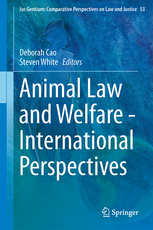Results
| Title | Citation | Alternate Citation | Agency Citation | Summary | Type |
|---|---|---|---|---|---|
| Glover v. Weber | Glover v. Weber,183 Wash.App. 1044 (Wash. Ct. App. Oct. 6, 2014) | 2014 WL 4988156 (Wash. Ct. App. Oct. 6, 2014) |
In this case, Sylvia Weber filed suit against Monika Glover for injuries sustained when Weber’s daughter fell off a horse owned by a third party and boarded on Glover’s land. The trial court granted summary judgment in favor of Weber. Glover appealed the trial court’s decision, arguing that she was immune from liability under the Equine Activities statute. The court of appeals reviewed the issue and reversed the trial courts decision and granted summary judgment in favor of Glover. The main issue of the case whether or not Glover fell under the definition of “equine activity sponsor” provided in the act. Weber argued that Glover was not an “equine activity sponsor” because she was not participating in a public or group-based equine activity or a professional equine activity. The court of appeals disagreed with Weber’s argument and determined that noting in the plain language of the statute requires the equine activity to be public or group-based or professional to be covered under the statute. For this reason, the court of appeals found that Glover was considered a “equine activity sponsor” under the act and was therefore immune from liability. |
Case | |
| Finland - Animal Welfare Decree | (396/1996, amendments up to 401/2006 included) | The Finnish Animal Welfare Decree intreprets certain sections of the Finnish Animal Welfare Act. It also contains provisions on animal premises, outdoor raising of animals for food production, care and treatment of animals, tying animals, breeding, food production, and killing animals. | Statute | ||
| MI - Wildlife Conservation - Chapter 324. Natural Resources and Environmental Protection Act | MCL 324.40501 | MI ST 324.40501 | This Section describes the Department of Natural Resource's authority to co-operate with the federal government and to use hunters' license fees for wildlife restoration. | Statute | |
| U.S. v. Stevens | 130 S.Ct. 1577 (2010) | 176 L.Ed.2d 435, 78 USLW 4267, 38 Media L. Rep. 1577, 10 Cal. Daily Op. Serv. 4819, 2010 Daily Journal D.A.R. 5779, 22 Fla. L. Weekly Fed. S 221 |
Defendant was convicted of violating statute prohibiting the commercial creation, sale, or possession of depictions of animal cruelty. The Supreme Court held that the statute was unconstitutional for being substantially overbroad: it did not require the depicted conduct to be cruel, extended to depictions of conduct that were only illegal in the State in which the creation, sale, or possession occurred, and because the exceptions clause did not substantially narrow the statute's reach. (2011 note: 18 U.S.C. § 48 was amended following this ruling in late 2010). |
Case | |
| FL - Lost Property - Lost or Abandoned Property | West's F. S. A. § 705.101 - 19 | FL ST § 705.101 - 19 | These Florida statutes comprise the state's lost property statutes. | Statute | |
| Terral v. Louisiana Farm Bureau Cas. Ins. Co. | 892 So.2d 732 (La.,2005) |
A motorcyclist hit a dog wandering on the road and sued the defendant under strict liability theory. The court found that the defendant was strictly liable because he owned the dog in fact. Although the dog was originally a stray, the court upheld a finding of ownership because the defendant regularly fed the dog and harbored it on his property. |
Case | ||
| NJ - Livestock - Chapter 8. Humane Treatment of Domestic Livestock. | N.J. Admin. Code tit. 2, § 8-1.1 - 8.7 | NJ ADC 2:8-1.1 - 8.7 | This subchapter establishes humane standards for the humane raising, treatment, care, marketing, and sale of cattle, pursuant to the authority accorded by N.J.S.A. 4:22-16.1. | Administrative | |
| LEDESMA, DIEGO ALBER TO SOBRE 1 -LEY DE PROTECCION ANIMAL, MALOS TRATOS O ACTOS DE CRUELDAD - Argentina- do not publish yet! | Lola Limon, cougar as subject of Rights | Case | |||
| U.S. v. Clucas | 50 F.Supp. 609 (D.C. Va. 1943) |
Defendant and several individuals went on a duck hunt in and were charged with exceeding the limit for migratory birds under Virginia law. The game wardens testified that the defendant, Clucas, admitted in the presence of the other parties that they had killed more than the 'bag', meaning thereby that they had killed more than ten ducks allowed for each person. The government held the position that the other individuals were hired for the reason of taking or killing the ducks. The court held that in view of the fact that January 6, 1943, was not the first day of the season the possession of twenty-six ducks by the two defendants did not constitute a violation of the provisions of the Virginia regulation. The possession being legal, the burden of proof did not shift to the defendants. |
Case | ||
| Animal Law and Welfare - International Perspectives |
|
Policy |
